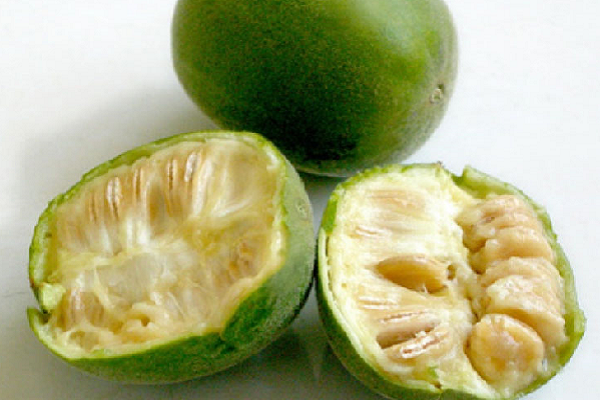
PHOTO: buyextracts.com
We all know that sugar can be quite bad for us. It may be the very worst ingredient in our diet, especially if consumed excess as we currently do.
It contains very few nutrients, adds to the “empty” calories count; it is bad for the liver, and it greatly increases your risk of diabetes, obesity, heart disease, and even cancer. And on top of it all, recent research has shown that is can be more addicting than drugs.
Many of us have a wicked sweet tooth, so all of this information fueled a search for a better sweetener: for some this means natural, for others calorie-free; and of course, sugar-free. Until now most sweeteners have been a disappointment and led to more health issues.
For example, when many diet soda drinks switched to using sucralose (Splenda), it was soon discovered that like sugar, it is also can lead to obesity, diabetes, and all of the other sugar-related conditions.
Then it was linked to issues some argue is even worse: dementia and stroke.
There is good news, however. A completely natural and essentially calorie-free (two calories per serving) sweetener is starting to work its way into the public consciousness, and it could be the healthiest one yet.
It is made from dried monk fruit, and it has been used in its home country for centuries. And now this unique, healthy sweetener is finally becoming popular in the U.S., and you may see it popping up in more of your favorite healthy food products.
Here’s why.
Monk Fruit: From Natural Sweetener to Health Benefits
Monk fruit (Siraitia grosvenorii) is native to China and parts of Thailand. It is often called Buddha fruit as it was used by monks as early as the 13th century, and the root of its name is linked to enlightenment.
Enlightenment or not, this Buddha fruit is 300 times sweeter than sugar, therefore makes a perfect sweetener even when used in small amounts. The sweetness comes from mogrosides, compounds that make up about 1% of fresh fruit, but in dried form can comprise up to 80%. Mogrosides are what makes the powdered form so sweet.
Besides being a sweetener, monk fruit also has a lot of health benefits and is often used in traditional Chinese medicine.
Monk fruit was not discovered outside of Asia or taken overseas, to the U.S., until the 20th century. Immediately, its uses as both a sweetener and medicine have been discovered by botanists and researchers.
One of the first medicinal reports said the fruit was used to fight inflammation, fever, cough, sore throat, and digestion issues. Today, we know that it does so much more than that. Monk fruit contains high amount of nutrients, and it:
- Fights free radicals
- Acts as an anti-inflammatory
- Prevents obesity and diabetes
- Aids weight loss
- Prevents cancer
- Fights infections
- Reduces Fatigue
- Treats diabetes
- Acts as a natural antihistamine
Based on current research, monk fruit has shown to be safe for everyone, including, children, pregnant women, and people with diabetes.
Unlike sucralose and other sweeteners, monk fruit has no known side effects.
How is Monk Fruit Sweetener Made?
Traditionally, monk fruit is harvested, cut open to remove the seeds, and then dried. In China, you can buy these dried fruits in local herbal shops (or online if in the U.S.). They can be used in tea, and even soups as a sweetener.
Commercially, because monk fruit can have a lot of different aftertastes depending on how it is prepared, a different processing system can be used to remove strange tastes and odors. Naturally this can be done with a filtration system, charcoal or bentonite clay.
The finished sweetener can be used in beverages, baked goods, sauces, desserts, and many others.
Cooking with Monk Fruit
When cooking with monk fruit, you will not need nearly as much of it as you would use sugar. However, how sweet it is depends on the percentage of mogrosides in the commercial product. One manufacturer recommends using half as much monk fruit as you would sugar (for example ½ cup instead of 1 cup). However, it is best to give it a test run yourself, and figure out what works.
Here are some recipes to try:
Gluten-free Paleo Carrot Orange Bread
Vegan Sugar-Free Caramelized Almonds
Sugar-Free Cream Cheese Frosting
Most of these recipes use Monk Fruit in the RAW, which is cut with dextrose. Keep reading for recommendations on finding pure monk fruit sweetener.
Where To Buy Monk Fruit Sweetener
When buying monk fruit sweetener, make sure to look at the ingredient list. Many monk fruit sweeteners contain high amounts of erythritol. Erythritol-containing sweeteners may have better ratings, because they taste better to some consumers. This substance is made from sugar alcohol and it is not as healthy as monk fruit, however. Erythritol is in the same group of sweeteners as xylitol, sorbitol, lactitol, and maltitol; all are made from sugar alcohols.
All of these can cause stomach upset at higher doses. Symptoms include diarrhea, nausea, stomach-ache, and headache.
Pure monk fruit sweetener should be 100% luo han guo (Siraitia grosvenorii). 100% monk fruit sweetener is sold online, or in some local natural food stores.
Please note, while generally it is recommended to avoid foods coming from China because of quality issues [read about fake Chinese organic food] monk fruit is grown mostly in China, therefore has to be exported from China. In this case, the only thing you need to be concerned with is whether or not it is a 100% monk fruit by looking at the ingredients.
For example, online you can find pure monk fruit sold by Julian Bakery. It has only 2 calories per serving (1 gram of monk fruit). It is non-GMO with no added ingredients.
The product does have a few minor drawback. It has a unique taste and smell, that may not be for everyone; but for those who like it, they really do like it. It is also not easily dis-solvable in cold liquids, but is perfect in hot tea, coffee, or hot chocolate.
For hot beverages, it is perfect, and reviews say that it will last for a long time:
“It is very sweet & concentrated, and you only need a tiny bit to sweeten your coffee for example.”
***
Why is diabetes completely misunderstood and mismanaged by conventional medicine? It doesn’t have to be… Don’t miss The Diabetes Summit 2018 from April 23-30, free and online!
Recommended reading:
This Completely Natural “Micracle Berry” Has the Otherworldly Ability to Make Sour Foods Taste Sweet
Why Avoid Sugar:
Study Links Diet Soda Consumption to Nearly Three Times Higher Risk of Stroke and Dementia
Thanks for installing the Bottom of every post plugin by Corey Salzano. Contact me if you need custom WordPress plugins or website design.






